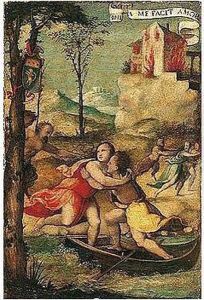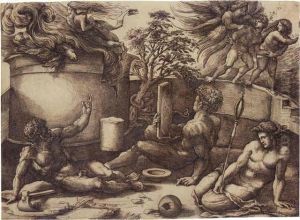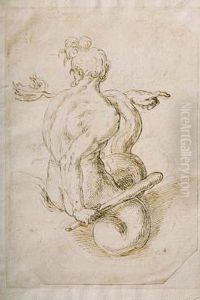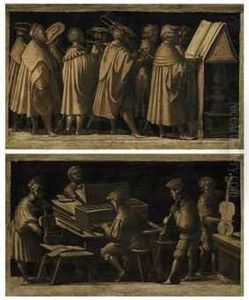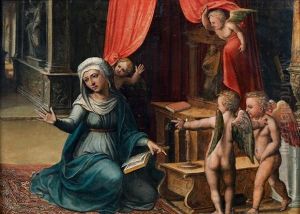Aspertini Amico Paintings
Amico Aspertini, born in Bologna in 1474 and died in 1552, was an Italian painter of the Renaissance period who is most notable for his eccentric and innovative artistic style. His work is characterized by its vibrant energy, imaginative figures, and often bizarre, grotesque imagery, which set him apart from his contemporaries and has fascinated art historians and critics for centuries. Aspertini was a part of the dynamic cultural environment of Bologna, a city that was a significant center for the arts during the Renaissance. He was deeply influenced by the antique, often incorporating elements from ancient Roman art and architecture into his compositions, a testament to the Renaissance's broader fascination with classical antiquity.
Aspertini is often associated with the Mannerist movement, although his work predates the height of Mannerism in the mid-16th century. His approach to painting, with its distorted figures and perspective, exaggerated emotions, and sometimes surreal landscapes, can be seen as a precursor to the Mannerist style. Despite his idiosyncratic style, Aspertini was well-regarded in his time, receiving commissions from prominent patrons, including the Bentivoglio family, one of the leading noble families in Bologna. His works include frescoes, altarpieces, and small devotional paintings, demonstrating his versatility across different media and formats.
Aspertini's legacy is complex; while he was not as widely celebrated as some of his contemporaries during the Renaissance, his unique artistic vision has been reassessed and appreciated in modern times. Art historians now recognize him as an important figure in the transition from the High Renaissance to Mannerism, highlighting his influence on later artists and his contribution to the development of Italian art. Despite the challenges in categorizing his work within the traditional art historical narrative, Aspertini remains a fascinating figure, whose paintings continue to intrigue and inspire those who encounter them.

